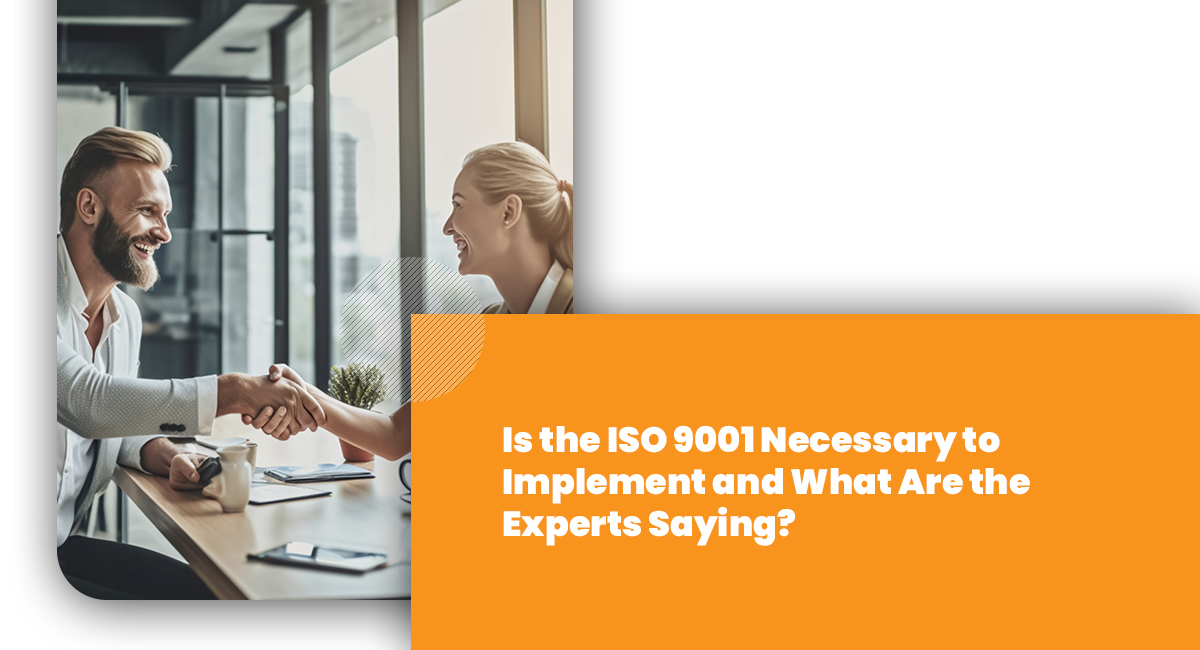
The ISO 9001 is the benchmark standard for quality management. From customer acquisition to brand establishment and sustainability, a company’s overall success depends on the quality of its products & services. Quality management is a rigorous control system to evaluate any needed correction in designing, manufacturing within the delivery system of a company. The standard increases the efficiency level and helps a company meet customer expectations, increase employee morale, and minimise resource wastage.
The ISO 9001 is a common requirement for meeting different business criteria like customer demands, brand loyalty, profit margin, stakeholder management and waste control. This standard sets five clauses, which support a company’s efforts to accomplish stakeholder needs within statutory compliance.
The ISO 9001 certification is the easiest way to strengthen your competitive advantage as well. When quality is not compromised, customer’s tendency to shift to other vendors is low. Quality management does not only help to acquire more customers but also to build a niche segment. The five clauses of the international quality management system function as prolific support for accomplishing the benchmark success.
What are the 5 clauses of ISO 9001?
Clause 1 – Scope of the program
The first clause is determining the scope of the quality management system. A company needs to determine internal and external forces that affect the current quality management system. Accordingly, the normative references and terms need to be decided.
Clause 2 – Policies and objectives
A company needs to set policies and SMART objectives to successfully establish an effective quality management system. The stakeholders must have a clear picture of the aim and objectives associated with the quality assurance system.
Clause 3 – Leadership
A resolute team of leaders from the management team should be built to communicate the terms, conditions, roles, and responsibilities of each stakeholder’s department. The team should be responsible for supervising and documenting each process.
Clause 4 – Planning
According to clause 4, companies should streamline everything with rigorous planning. The planning must include resource acquisition, utilisation, and performance evaluation.
Clause 5 – Enforcement
The last clause is the enforcement of proper operations including corrective actions. To modify the existing quality management system, planned resources and activities should be enforced under the supervision of experienced leaders.
Each of these clauses has precise requirements, which should need to be met so you can reach the desired goal or outcome.
When it comes to determining if the ISO 9001 standard is a necessary element for business success, one needs to check the endless advantages gained through it.
What are some of the key benefits of the ISO 9001?
Benefit 1 – Quality Performance
Achieving the international quality management standard is the easiest way to control and effectuate quality performance. The ISO 9001 is the globally acknowledged certification that enables a company to prioritise their design, manufacturing, and delivery quality of the products. The fundamental purpose of the certification helps to meet the expected levels of customer satisfaction.
Benefit 2 – Brand Loyalty
Customer satisfaction increases a brand’s reputation. Client acknowledgement helps to establish a brand. Loyal customers function as references and attract new consumers and together they create a strong profit base. Through quality management, a company successfully meets expectations and increases the demand curve. Further, constant quality service increases the buying satisfaction level.
Benefit 3 – Cost Efficiency
One of the main purposes of the ISO 9001 is to provide a framework for maintaining the production cost. The framework highlights the necessary resources, which helps to eliminate the less-valued assets from production and delivery. A company gets the opportunity to save both money and time.
Benefit 4 – More Revenue
It is not difficult to comprehend that a company will increase its profits when it has an established brand. With a niche base of customers and the potential to attract new segments, a company should achieve a high revenue margin. The constant source of income helps to plan and build a contingency fund to combat adverse situations in future.
Benefit 5 – Competitive Advantage
The ISO 9001 certification acts as a marketing tool as well. It offers a competitive edge in the current market. A brand can increase its product sell value when it is certified by the internal quality management system.
To know more about the system and to meet compliance with each clause, you can certainly consider the premium consulting facility from ComplianceHelp. If you have further confusion regarding making an investment in the certification, take the expert opinions from ComplianceHelp. Their consultants are experienced and certified experts who specialise in various aspects of ISO certification. To know more, click here!

Get connected with us on social networks!